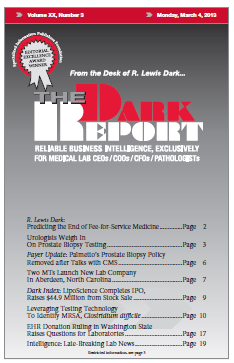CEO SUMMARY: When the Washington State Attorney General issued an Attorney General Opinion last fall, he created confusion among pathologists and lab directors whose labs have paid to have EHR software installed in physicians’ offices. The Washington AG’s ruling not only conflicts with federal law, which allows labs to donate EHR software, but raises questions …
EHR Donation Ruling in WA Raises Questions for Labs Read More »
To access this post, you must purchase The Dark Report.


